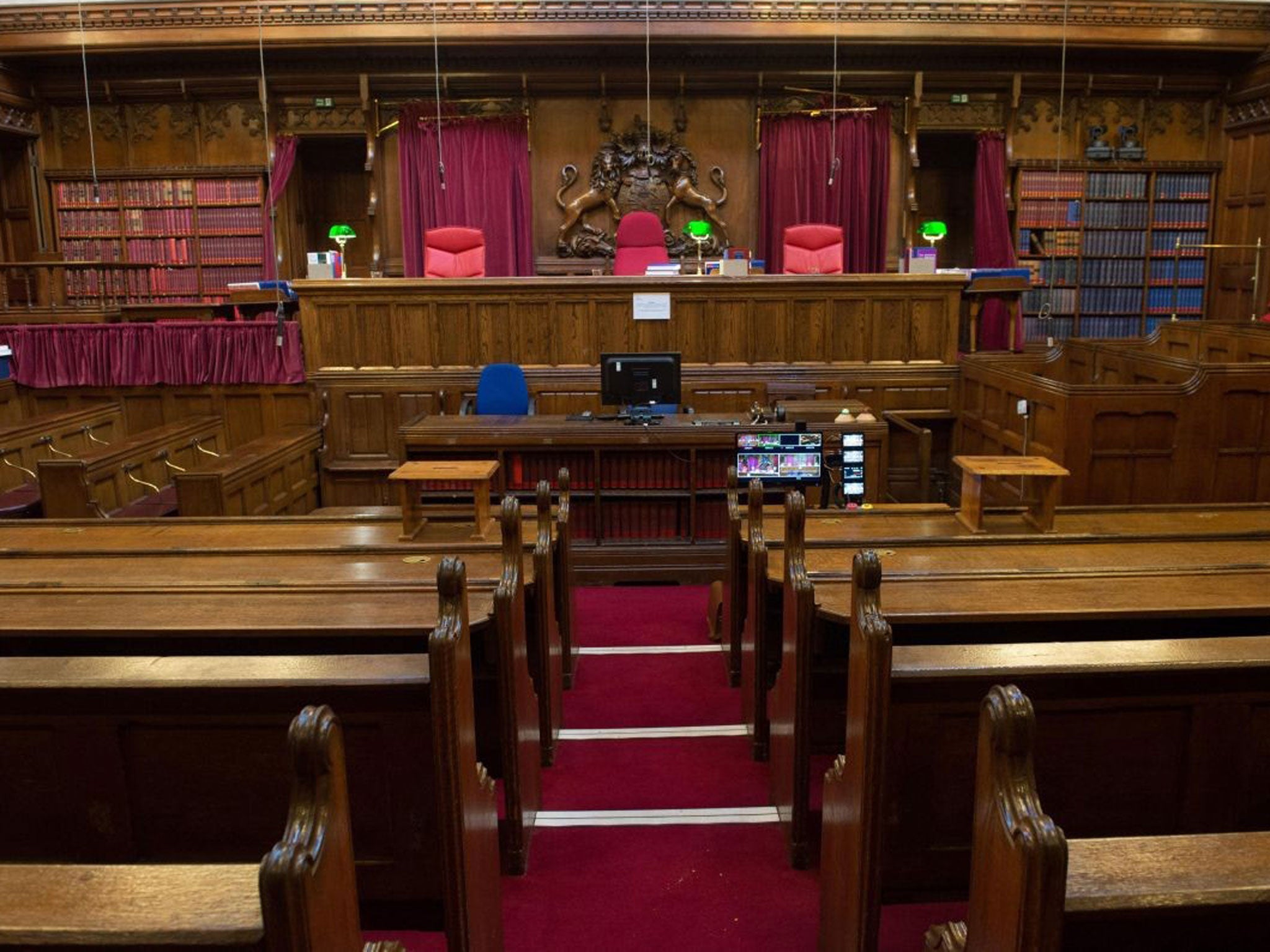Court of Appeal to be televised for the first time after filming ban is lifted
Cameras now fitted in five courtrooms at the Royal Courts of Justice

Your support helps us to tell the story
From reproductive rights to climate change to Big Tech, The Independent is on the ground when the story is developing. Whether it's investigating the financials of Elon Musk's pro-Trump PAC or producing our latest documentary, 'The A Word', which shines a light on the American women fighting for reproductive rights, we know how important it is to parse out the facts from the messaging.
At such a critical moment in US history, we need reporters on the ground. Your donation allows us to keep sending journalists to speak to both sides of the story.
The Independent is trusted by Americans across the entire political spectrum. And unlike many other quality news outlets, we choose not to lock Americans out of our reporting and analysis with paywalls. We believe quality journalism should be available to everyone, paid for by those who can afford it.
Your support makes all the difference.A ban has been lifted on the filming of courts in England and Wales, in a move hailed by broadcasters as a "landmark moment" for the industry.
The first court of appeal case was broadcast today from courtroom number four at the Royal Courts of Justice.
The decision to allow cameras into courtrooms came after BBC, ITN, Sky News and the Press Association formed a cross-broadcaster working group that campaigned to lift the ban on filming.
Campaigners argue that televising court cases will help the public gain a better understanding of criminal justice procedures.
Five courtrooms at the Royal Courts of Justice are now pre-wired with cameras placed in discreet positions and are to be operated by the court video journalist Matt Nichols.
James Harding, BBC director of news and current affairs, said the ban was a "landmark moment for justice and journalism" and will assist millions of viewers in gaining a better understanding of the judicial system in England and Wales.
John Battle, ITN head of compliance argued that it has taken too long for this day to come.
He said: “It's about ensuring there's greater transparency in courts and that justice is seen to be done as well as done.
“The Government has decided openness is important to greater understanding of the criminal justice procedures and to ensure the public get a greater knowledge of how our justice system works.”
Discussing compliance, he said: “This is not going to be that different from any other form of journalistic process - internet, television, tweeting. We have to comply with the law.
A number of safeguarding measures have been introduced to ensure broadcasters do not infringe upon regulations or standard court reporting restrictions, such as a 70-second delay on live broadcasts to allow the removal of any footage that could, for example, contravene contempt of court laws.
Additionally, appeals against convictions which could result in a re-trial will only be shown once the case is decided, and and the judge can order no filming or broadcasting if it is in the interests of justice.
Footage can be used in a news and current affairs context only and is prohibited from being used in other genres such as satire, entertainment or commercial use in advertising.
The Government said it will now consider filming of sentencing remarks in the Crown Court, with victims, witnesses, offenders and jurors still protected and not forming part of the broadcasts.
In 2011 that the then-justice secretary Kenneth Clarke finally announced plans to lift the ban on filming in courts.
Courts minister Shailesh Vara said: “This is a landmark moment that will give the public the opportunity to see and hear the decisions of judges in their own words.
“It is another significant step towards achieving our aim of having an open and transparent justice system."
Additional reporting by Press Association
Join our commenting forum
Join thought-provoking conversations, follow other Independent readers and see their replies
Comments